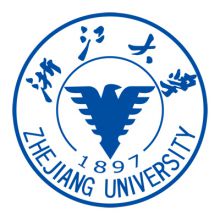Since the Covid-19 outbreak in Wuhan, some Chinese health experts have been busy not only fighting the virus but also defending their own reputations amid an avalanche of public doubt and criticism.
Social media has been rife with accusations that the experts misjudged the severity of the epidemic, leading to an insufficient government response in its early stage. Other people question academics’ professional ethics and accuse them of being the “accomplices” of the government in covering up “the truth” about the virus – even though the World Health Organisation has been praising China’s transparency and effectiveness in sharing information.
Still others, citing the recent injunction from the Ministry of Science and Technology for academics to write papers “on the motherland”, criticise the so-called academic utilitarianism that favours research publication over epidemic control.
A typical case occurred on 31 January. A study claiming that a traditional remedy “helps to suppress the virus” was reported in the media, resulting in a mad rush to buy the medicine. However, the joint study by academics at the Shanghai Institute of Materia Medica and the Wuhan Institute of Virology was dismissed by other medical experts as “false propaganda”, which immediately triggered a backlash, including suggestions that the research was “hijacked” by vested interests. Be they true or false, those claims circulated widely, indicating the public’s distrust and resentment towards health experts.
In my view, the fact that experts are facing these doubts can be seen as an outcome of social development. The internet allows information to travel extensively and public data are more accessible than ever before. Social media is also amplifying the public’s voice, making it much easier to launch a “revolution” against experts.
Thanks to a series of incidents in the past decade, experts in China now have a bad name for violating public values and acting as spokespeople for interest groups. It is common practice for businesses to seek endorsement from experts in order to influence policymaking or manage public relations crises. But some of the statements made by experts in such corporate relationships have been seen by the public as insulting their intelligence, casting all experts into disrepute. Hence, “experts” have become known as “bricksperts” – the brick being a symbol of their lack of neutrality and ability.
However, rather than taking the public’s scepticism as a sign of its surrender to a populistic distrust of elites, I believe that it reflects people’s desire for truth and social justice, and their anxiety that the public sphere has been significantly weakened, such that free expression is difficult for ordinary citizens.
Nonetheless, we have every reason to be cautious about potential populism. Experts might help with policymaking, but, at the end of the day, they are not the decision-makers. So it is undoubtedly too harsh to attribute the epidemic to experts.
Topics such as identifying the source of the virus and controlling the epidemic are extremely complicated, but they are discussed in the same noisy, fractious public fora as much simpler issues of general concern. The absence of rational scientific communication on social media enables rumours to spread, exacerbating the tide of anti-intellectualism, but experts often have neither the time nor the inclination to get involved in the wars of words. Fu Gao, director of the China Center for Disease Control and Prevention, was denounced by detractors as a “criminal” who had supposedly neglected his duty and been “investigated for wrongdoing”. But rather than spending his time rebutting this fake news on social media, he told the mainstream media that “I cannot afford to argue with people online” because his work to combat the virus was too pressing.
However, it is not surprising to see that scientists like Nanshan Zhong, the discoverer of Sars and director of the Guangzhou Institute of Respiratory Diseases, and Lanjuan Li, an epidemiologist at Zhejiang University, have been highly complimented for their bravery in judging the Covid-19 epidemic cautiously and revealing information to the public in a timely and transparent manner. This underlines citizens’ desire for honest and reliable experts.
Looking beyond the current outbreak, therefore, we need to establish a knowledge sharing system that all citizens can trust. But, on that, there is still a long way to go.
Jingtai Tang is a professor in the School of Journalism and Communication at Jinan University, China.
POSTSCRIPT:
Print headline: Learning to trust the experts
Register to continue
Why register?
- Registration is free and only takes a moment
- Once registered, you can read 3 articles a month
- Sign up for our newsletter
Subscribe
Or subscribe for unlimited access to:
- Unlimited access to news, views, insights & reviews
- Digital editions
- Digital access to THE’s university and college rankings analysis
Already registered or a current subscriber? Login











